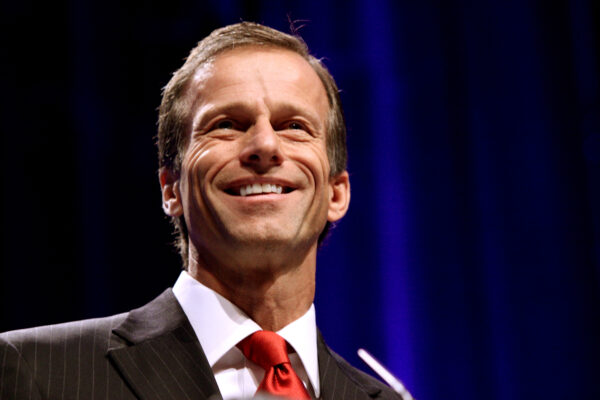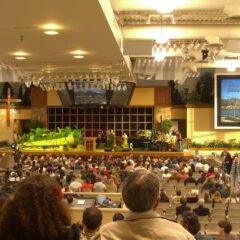This post originally appeared on Trans-Missions, the USC Knight Chair in Media and Religion site.
With the recent midterm election now behind us, reporters are beginning to speculate about potential Republican challengers to President Obama, and even challengers from within his own party, in the 2012 presidential election. To date, much of the media attention has centered on Sarah Palin and her reality show. Other reports have focused on potential candidates like Tim Pawlenty, Mike Huckabee, Mitt Romney and even Newt Gingrich, who has indicated that he may run in 2012. But one name that has been mentioned among these potential challengers is a surprise—the little known senator from the great state of South Dakota, John Thune. What John Thune lacks in broad exposure, he may gain though his connections to core Republican values voters.
Thune attended the conservative evangelical school Biola University in Southern California, and since his election to the Senate, has been celebrated by the university. Not only is Biola a stronghold of conservative evangelicalism and values Republicanism, it holds to, and promotes, a pre-millennial dispensationalist theology and worldview. In its most basic form, dispensationalism teaches that Jesus will return to Earth to retrieve true believers before humans manage to destroy the planet and that those who faithfully support the nation of Israel will be blessed by God. These deceptively simple beliefs have significant implications for both domestic and foreign policy positions; dispensationalists deny the possibility of nuclear holocaust or environmental catastrophe on the one hand and, on the other, unstintingly support the idea that America must always be Israel’s special friend.
This politically inflected “Christian Zionism” also threads through the policy narratives ofSarah Palin, Newt Gingrich and Mike Huckabee, who have all courted (or at least flirted with) the constituency represented by pastor John Hagee and his organization, Christians United for Israel.
What makes Thune an interesting person to watch is not just his connection to evangelical institutions like Biola, but how the theology and cultural worldview these institutions promote continue to influence his political and policy positions. Not only would this have implications for foreign-policy vis-à-vis Israel and the Middle East, but dispensationalists are among the most adamant in their beliefs that such things as global warming, interfaith dialogue and social justice ethics are not supported by biblical teaching and that an emphasis on these issues undermines the true Christian message. Thune is also connected to the influential–and controversial–C Street organization, which could prove to be both an asset and a liability to his potential candidacy.
As we move toward the 2012 election the relationship between Thune’s and other potential candidates’ religious beliefs and their various policy positions bears close scrutiny. Of course Thune may never enter the race, and if he does, he may lose early on. But the connection between any candidate’s religious beliefs and how he or she believes the world “really works” is an urgent and often under-reported topic in political journalism. Regardless of whether we see a true dispensationalist as a candidate for president, all candidates have a worldview that inevitably influences their daily decisions and political positions. Thus it is important for reporters to ask how they understand the relationship between their beliefs and the power they would wield as the most powerful chief executive in the world.
Photo Credit: Gage Skidmore/Flickr
Richard Flory is the executive director of the USC Center for Religion and Civic Culture.








